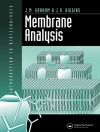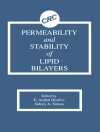J. curcas L. is a small or large shrub tree, up to 5-7m tall, belonging to the Euphorbiaceae family which consists of around 800 species and belongs to around321 genera. Jatropha is a drought resistant crop that has a life expectancy of up to fifty years. It is also known as Ratanjayot and the "physic nut". It can grow in arid, semiarid and wasteland climates. The plant has its native distributional range in Mexico, Central America, Africa, Brazil, the Indian subcontinent, Peru, Argentina and Paraguay. J. curcas offers many benefits. Some of these benefits include: It costs almost nothing to grow; it is perennial, drought resistant and adapted for marginal land, and seems to be adequate for land reclamation; it can be grown almost anywhere – even in sandy, saline, or otherwise infertile soil; it is easy to propagate; it is capable of stabilizing sand dunes, acting as a windbreaker and combating desertification; it naturally repels both animals and insects; it does not exhaust the nutrients in the land; it does not require expensive crop rotation; it does not require fertilizers; and it grows quickly and establishes itself easily, among many other beneficial qualities. Currently, J. curcas can produce 2, 000 L/ha oil annually. Presently, the production and usage of J. curcas oil is no longer confined to a specific geographic region or a limited number of end-products. Large quantities of J. curcas oil are consumed all over the world as ingredients of numerous products manufactured by a large number of industries. J. curcas was found to be suitable as a non-edible vegetable oil feedstock in oleochemical industries (biodiesel, fatty acids, soap, cosmetics, paraffin, fatty nitrogenous derivatives, surfactants and detergents, etc.). To supply J. curcas oil and its derived ingredients to these industries and their customers, an integrated J. curcas oil production has been developed over the years. Globally, J. curcas has created an interest for researchers because it is a non-edible oil, does not create a food versus fuel conflict, and can be used to produce biodiesel with same or better performance results when tested in diesel engines. For the above mentioned, the purpose of this book is to provide an insight into the possibilities of applying J. curcas for commercial purposes. Emphasis will be placed on the biology, chemistry and potential uses of J. curcas and its derivatives.
David Betancur-Ancona & Maira Rubi Segura-Campos
Promising Future of Jatropha curcas [PDF ebook]
Properties and Potential Applications
Promising Future of Jatropha curcas [PDF ebook]
Properties and Potential Applications
Beli ebook ini dan dapatkan 1 lagi GRATIS!
Format PDF ● Halaman 261 ● ISBN 9781634850155 ● Editor David Betancur-Ancona & Maira Rubi Segura-Campos ● Penerbit Nova Science Publishers ● Diterbitkan 2016 ● Diunduh 3 kali ● Mata uang EUR ● ID 7229245 ● Perlindungan salinan Adobe DRM
Membutuhkan pembaca ebook yang mampu DRM












